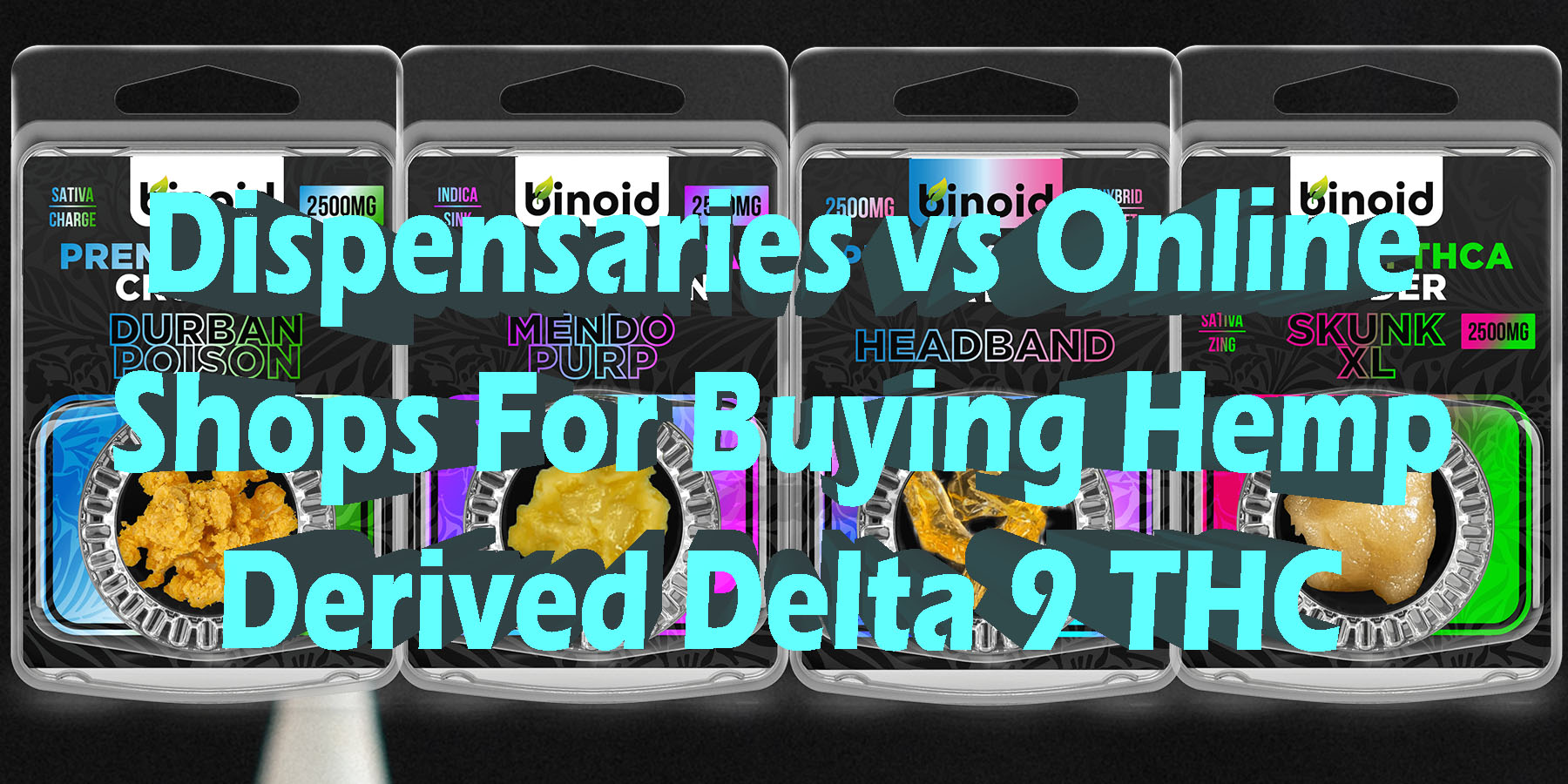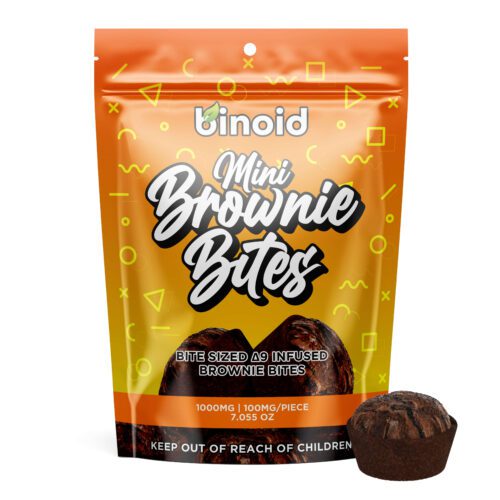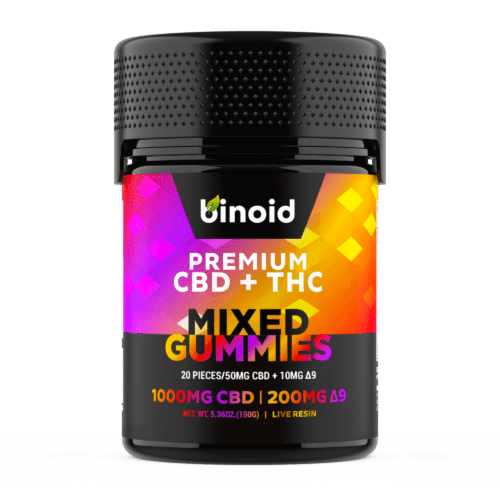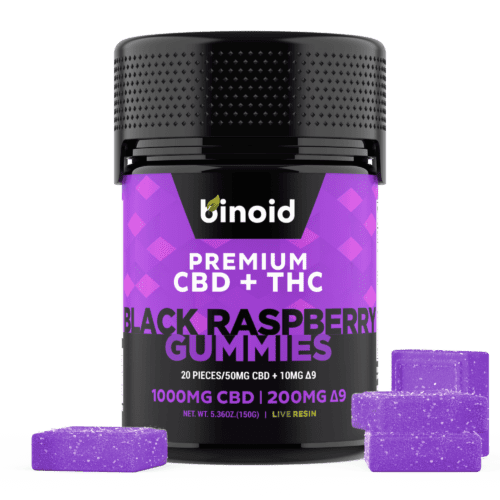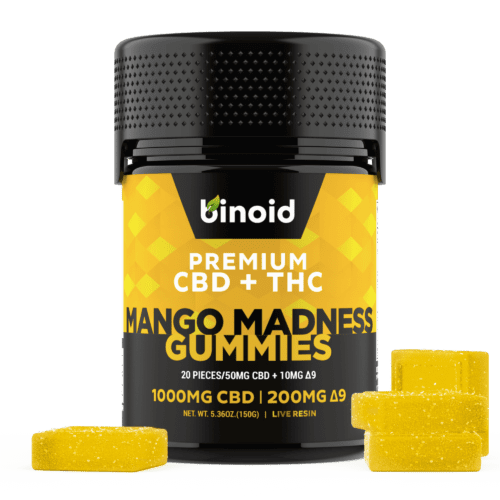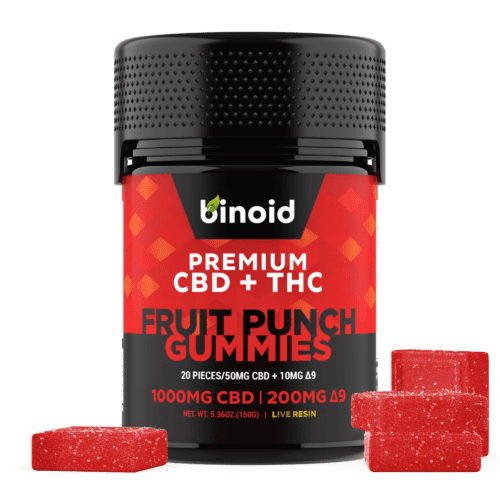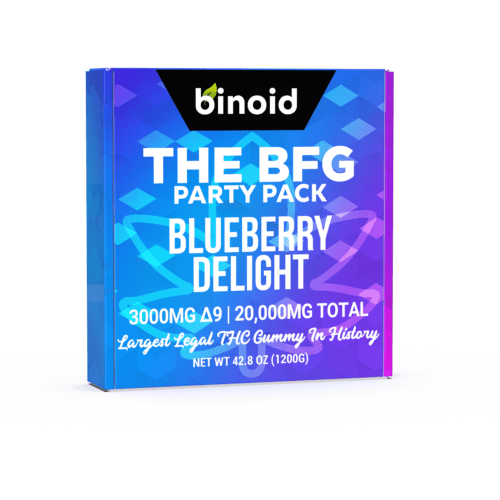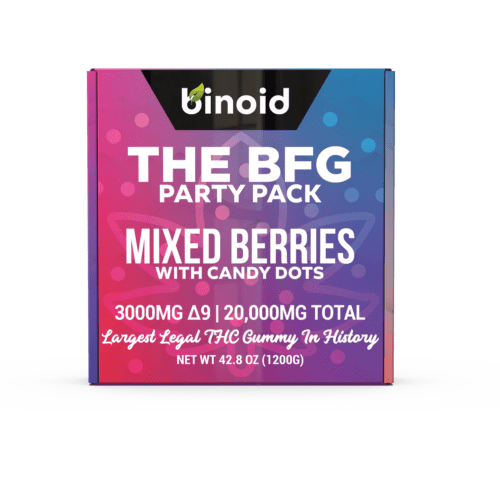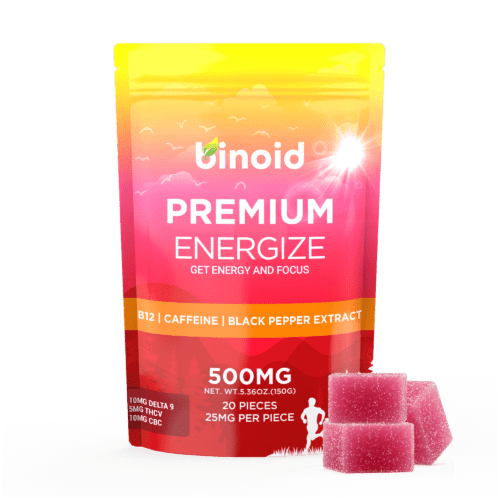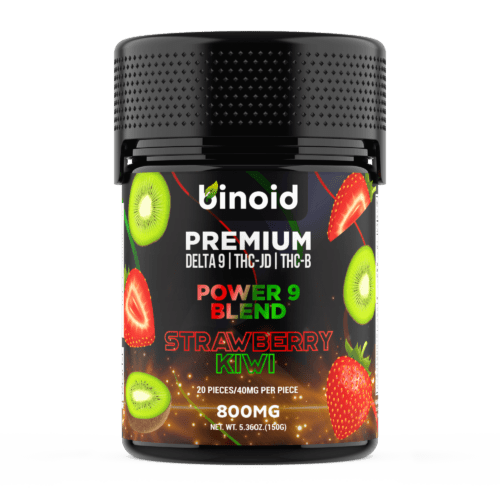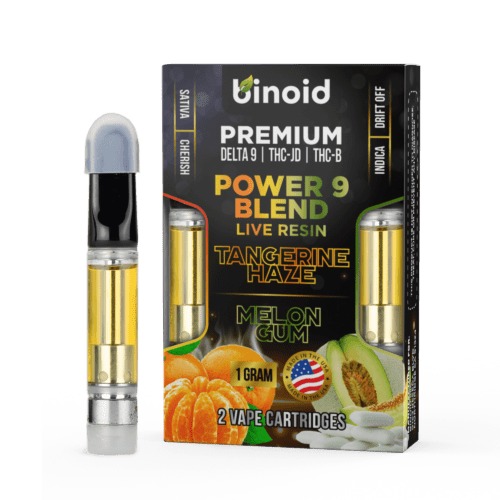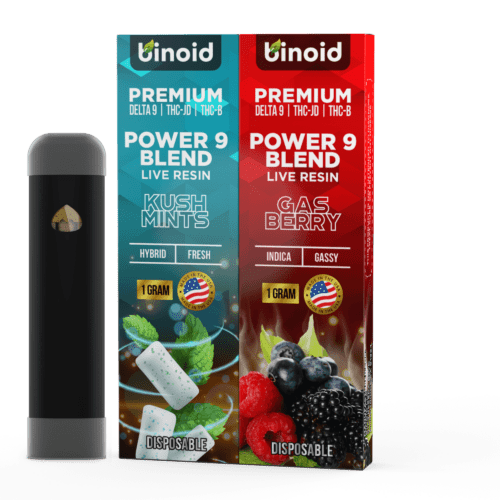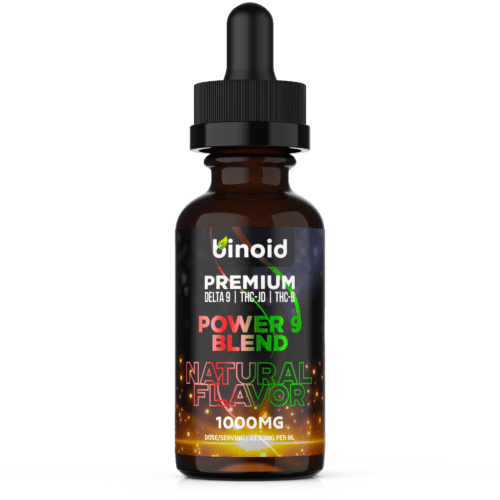The world of cannabinoids is an ever-expanding universe, brimming with novel compounds, innovative products, and evolving ways to access them. As fascination with hemp-derived cannabinoids continues its upward trajectory across the United States, individuals are encountering an unprecedented array of choices. This is particularly true for hemp-derived Delta 9 THC, a compound that sits at a unique intersection of federal law and consumer interest.
The burgeoning availability of these products means potential users are faced with a key decision: should they procure their hemp-derived Delta 9 THC from a state-licensed cannabis dispensary or turn to the increasingly popular online marketplace of hemp retailers? Both options present their own sets of advantages and characteristics, and a clear understanding of these is paramount to making a choice that resonates with one’s personal needs and preferences. This exploration seeks to demystify the purchasing journey, offering a balanced perspective on each avenue without resorting to unsubstantiated claims, thereby empowering you with the knowledge to navigate this dynamic landscape.
To Buy Delta 9 THC Products Click Here
Recommended products
Getting to Know Cannabis Dispensaries and Online Cannabis/Hemp Shops and Their Purposes
Before delving into the nuances of acquiring hemp-derived Delta 9 THC, establishing a clear understanding of the two main retail environments—cannabis dispensaries and online cannabis/hemp shops—is essential. These outlets are the primary gateways for consumers to access cannabinoid products, yet they function under distinct operational models, often cater to different consumer expectations, and provide varied interactive experiences. Each has carved its niche within the intricate regulatory tapestry that governs cannabis and hemp in the United States, and their respective roles continue to be shaped by both legal mandates and the ever-shifting tides of market demand.
Understanding Cannabis Dispensaries and Their Purpose
A cannabis dispensary is a state-sanctioned, physical retail establishment legally authorized to sell cannabis products. Depending on specific state and local regulations, their inventory can include marijuana-derived products and, in certain instances, hemp-derived items. The fundamental purpose of a dispensary is to offer a controlled, secure, and legally compliant environment where consumers can access these substances. Upon entering a typical dispensary, a customer first encounters a secure check-in area, often followed by a separate chamber where products are displayed and sold. The entire setup underscores security and adherence to legal requirements, featuring mandatory ID verification, comprehensive surveillance systems, and meticulously secured product storage, all of which are direct responses to the stringent regulatory oversight these businesses operate under.
The interior of a dispensary is generally crafted to be both informative and inviting. Products are typically showcased in locked display cases, and patrons interact with “budtenders” or knowledgeable sales associates. These staff members are expected to possess a thorough understanding of the various Delta 9 THC products on offer, guiding consumers through different strains, potencies, cannabinoid profiles, and consumption methods. They can furnish personalized recommendations based on a customer’s expressed preferences or desired outcomes, such as attaining a state of bliss or enhanced clarity. The ambiance can vary significantly, from a sterile, almost clinical environment to a more relaxed, boutique-style retail space, reflecting the dispensary’s specific brand identity and the demographic it aims to attract, with a consistent emphasis on education and guided selection within a secure, face-to-face interaction.
Beyond the transactional aspect of sales, dispensaries often strive to function as community hubs and centers for cannabis-related education. Many organize informational workshops, distribute literature on responsible consumption practices, and endeavor to destigmatize cannabis use by cultivating an open, professional, and welcoming atmosphere. They also have a pivotal role in upholding Delta 9 THC product safety within the legal markets they inhabit, as they are usually mandated to source their inventory from licensed cultivators and producers who comply with state-enforced testing for potency and potential contaminants. This function as a gatekeeper is crucial in markets where rigorous regulatory oversight is paramount for consumer protection and the overall legitimacy of the burgeoning industry.
Ultimately, the existence and operational framework of dispensaries are deeply interwoven with state-specific cannabis legalization programs. For medical marijuana dispensaries, their mandate includes the critical tasks of verifying patient eligibility through medical marijuana cards and ensuring that registered patients can procure products that align with their specific, documented needs. In the context of adult-use or recreational dispensaries, the objective is to provide legal access to cannabis for adults aged 21 and over, thereby generating tax revenue for the state and simultaneously working to diminish the scope of the unregulated illicit market. Their physical presence establishes them as tangible, regulated points of access within the broader cannabis ecosystem, effectively serving as the frontline of legal cannabis commerce in numerous states across the nation.
Recommended products
Understanding Online Cannabis/Hemp Shops and Their Purpose
An online cannabis or hemp shop is an e-commerce platform that empowers consumers to browse, select, and purchase cannabis or hemp-derived products through the internet, with the chosen items subsequently shipped directly to their specified address. The foremost purpose of these digital storefronts is to provide unparalleled convenience, a vast product selection, and often, more competitive pricing by capitalizing on the inherent efficiencies of online retail.
These platforms can vary widely – from websites operated by multi-brand retailers that stock products, ranging from a multitude of different producers, to direct-to-consumer (DTC) sites managed by companies that cultivate, manufacture, and exclusively sell their own proprietary branded product lines. This digital model significantly broadens accessibility, especially for individuals who may not reside near a physical dispensary or who simply prefer the discretion, ease, and comfort of shopping from their own homes.
The foundational structure of an online cannabis/hemp shop is its website or dedicated digital application. These platforms typically feature comprehensive product pages replete with detailed descriptions, high-quality images, customer-generated reviews, and, crucially for transparency, readily available third-party lab test results, often presented as Certificates of Analysis (CoAs), which meticulously verify cannabinoid content and purity.
In contrast to the guided, in-person interaction characteristic of dispensaries, online shops equip consumers to conduct their own thorough research and make their selections at their own pace and leisure. Many enhance this self-guided experience by offering educational content such as blogs, extensive FAQ sections, and responsive customer support through channels like live chat, email, or telephone to address any queries, with an overarching emphasis on providing exhaustive information digitally to foster well-informed purchasing decisions that might lead to desired experiences of focus or euphoria.
A particularly significant aspect of the purpose driving many online hemp shops, especially those specializing in federally compliant products like hemp-derived delta 9 THC, is their capacity to operate across state lines, strictly adhering to federal legislation such as the 2018 Farm Bill. This pivotal piece of legislation federally legalized hemp and its derivatives, including hemp-derived Delta 9 THC, provided that the final product contains no more than 0.3% Delta-9 THC by dry weight or volume. This legal framework has empowered online retailers to serve a broad national audience within the USA, making products available that might otherwise be inaccessible locally or in states with more restrictive cannabis laws. Consequently, their purpose also inherently involves navigating the intricate and often shifting legal landscape to reliably provide federally compliant products to a diverse and widespread consumer base.
Furthermore, online cannabis and hemp shops frequently endeavor to cultivate a strong sense of community and foster enduring brand loyalty through various forms of digital engagement. This can manifest through initiatives such as customer loyalty programs, informative email newsletters featuring exclusive promotions and new product announcements, and maintaining an active, engaging presence on various social media platforms. For brands that manufacture and sell their own products, their online shop becomes an indispensable direct channel to their customers, enabling them to articulate their brand story, solicit valuable feedback, and cultivate a dedicated following.
These businesses strive to offer a completely seamless and trustworthy purchasing journey, encompassing everything from intuitive website navigation and secure payment gateways to discreet packaging and dependable shipping logistics, ensuring that the entire experience from initial click to final delivery is both smooth and entirely satisfactory for the consumer.
Recommended products
Exploring the Immaculate Cannabinoid Known as Delta 9 THC
Delta-9-tetrahydrocannabinol, universally recognized as Delta 9 THC, stands as the most renowned and well-researched cannabinoid found within the cannabis plant. It’s the primary psychoactive compound responsible for the euphoric and mind-altering effects colloquially associated with cannabis consumption. While its presence in marijuana is often at high concentrations, the emergence of hemp-derived Delta 9 THC products, compliant with federal law, has opened new avenues for individuals across the USA to get in on its characteristics.
These products must adhere to the legal limit of no more than 0.3% Delta-9 THC by dry weight or volume, a stipulation that has led to innovative product formulations allowing for meaningful amounts of Delta 9 THC while remaining within legal bounds. Understanding this specific cannabinoid involves delving into its history, its intricate chemistry, its wide-ranging effects, and the diverse product formats in which it is now available.
The history of Delta 9 THC is deeply intertwined with humanity’s long relationship with the cannabis plant, which dates back thousands of years for various industrial, medicinal, and ritualistic purposes. However, the scientific isolation and structural elucidation of Delta 9 THC didn’t occur until 1964, achieved by a dedicated team of Israeli researchers led by Dr. Raphael Mechoulam at the Weizmann Institute of Science. This groundbreaking discovery was a pivotal moment, as it unlocked the door to understanding the specific compound responsible for cannabis’s most prominent psychoactive effects.
Following this identification, research into Delta 9 THC burgeoned, focusing on its pharmacological actions, metabolic pathways, and potential interactions within the human body. This foundational work paved the way for the later discovery of the endocannabinoid system, a complex network of receptors and neurotransmitters with which THC and other cannabinoids interact.
From a scientific and chemical standpoint, Delta 9 THC has the chemical formula C21H30O2. Its psychoactive properties are primarily attributed to its ability to bind effectively with CB1 receptors, which are densely concentrated in the brain and central nervous system. This binding action modulates the release of various neurotransmitters, leading to the array of effects users experience.
The “Delta 9” designation refers to the specific location of a double bond in its molecular structure, distinguishing it from other THC isomers like Delta 8 THC or Delta 10 THC, which have slight structural variations that result in different psychoactive potencies and profiles. The concentration of Delta 9 THC in a product is a critical factor determining its strength, and in the context of hemp-derived products, this concentration must not exceed the 0.3% threshold by dry weight or volume to maintain federal legality in the USA.
The effects of Delta 9 THC are multifaceted and can vary significantly from person to person, influenced by factors such as dosage, individual physiology and tolerance, the presence of other cannabinoids and terpenes (the entourage effect), and the method of consumption. Commonly reported effects include euphoria, altered sensory perception (such as brighter colors or more intense sounds), an increased appetite, and changes in the perception of time.
Many users report feelings of bliss, enhanced creativity, or a heightened sense of connection. Studies suggest that Delta 9 THC interacts with brain regions involved in memory, pleasure, coordination, and concentration, which accounts for its diverse impact. While often sought for these uplifting experiences, it’s also important to be mindful of dosage, as higher amounts can sometimes lead to less desirable outcomes for some individuals. Responsible consumption is key to a positive experience.
Recommended products
Hemp-derived Delta 9 THC is available in an impressive variety of product types and delivery methods, catering to a wide spectrum of consumer preferences and desired experiences, all while adhering to federal compliance standards.
Flower: Legally compliant hemp flower, by definition, contains no more than 0.3% Delta-9 THC by dry weight. While this percentage is low for D9 THC-specific psychoactivity if it’s the sole active compound, this flower is rich in other cannabinoids like CBD and terpenes, contributing to an entourage effect. It’s available as loose buds (Indoor, Outdoor, various Exotic grades like AAAA or AAA, and ‘smalls’), in pre-rolls/joints, and even as enhanced versions like Snow Caps (hemp flower with added CBD/CBG kief or isolate) or Moonrocks (hemp flower coated in hemp concentrate and kief). These products are primarily valued for their full-spectrum hemp benefits rather than intense D9 THC effects from the flower alone.
Vapes: Hemp-derived Delta 9 THC vape products typically combine Delta 9 THC distillate with other hemp-derived cannabinoids and terpenes to create a balanced formulation that remains compliant (often <0.3% D9 THC of total liquid volume but potent due to inhalation). These products offer rapid onset of effects, usually within minutes, as the cannabinoids are absorbed directly into the bloodstream via the lungs. Vaping provides a convenient and discreet way to experience potential effects like euphoria or enhanced focus. Pre-filled cartridges connect to reusable batteries, while disposable pens are all-in-one units, available in numerous strain profiles and flavors.
Edibles: This is where the 0.3% Delta-9 THC by dry weight rule becomes particularly significant. A gummy, candy, mint, or baked good can be relatively heavy, allowing for a legally compliant product to contain a substantial milligram amount of Delta 9 THC (e.g., a 5-gram gummy can contain up to 15mg of D9 THC). This makes edibles a very popular choice for those seeking noticeable psychoactive effects from hemp-derived Delta 9 THC. Effects are slower to onset (30 minutes to 2 hours) as they are processed through the digestive system, but they tend to be longer-lasting and can provide a profound sense of bliss.
Drinks & Beverages: Similar to edibles, hemp-derived Delta 9 THC can be infused into a variety of drinks and beverages. The 0.3% by dry weight or volume rule applies, allowing for psychoactively relevant doses in a standard serving size. These products range from seltzers and sodas to flavored waters and drink enhancers. They offer a novel and often refreshing way to consume Delta 9 THC, with an onset time that can sometimes be faster than solid edibles if formulated for quicker absorption. The experience can be tailored through different cannabinoid ratios and terpene profiles, aiming for specific moods like relaxation or upliftment.
Concentrates: True hemp-derived Delta 9 THC concentrates, if sold as standalone products for dabbing or direct inhalation and meant to be compliant, would need to have less than 0.3% Delta-9 THC of the concentrate’s own weight. This makes high-D9 THC concentrates (like those found in marijuana dispensaries) fundamentally different. More commonly, “hemp-derived D9 THC concentrates” might refer to D9 THC distillate that is then used as an ingredient in other compliant products like edibles or vapes. If a concentrate is marketed for direct use and focuses on D9 effects from hemp, it often incorporates other cannabinoids to balance the profile while ensuring the D9 THC component remains within legal limits, or it’s sold in a way that the total product by volume allows a higher D9 percentage if it’s a liquid concentrate.
Tinctures: Hemp-derived Delta 9 THC tinctures offer a versatile method of consumption, typically administered sublingually (under the tongue) for relatively rapid absorption, or added to food and drinks. These liquid extracts usually suspend the Delta 9 THC (often along with other cannabinoids and terpenes for an entourage effect) in a carrier oil like MCT or hemp seed oil. The 0.3% Delta-9 THC by dry weight or volume rule applies, allowing for various potencies. Tinctures enable precise dosing via a calibrated dropper, making it easier for users to find their optimal amount for achieving desired states like clarity or potential relief.
Capsules/Tablets: For those seeking a straightforward, precisely dosed, and discreet way to consume hemp-derived Delta 9 THC, capsules and tablets are an excellent option. Each capsule or tablet contains a specific milligram amount of Delta 9 THC, eliminating any guesswork involved in dosing. Similar to other oral ingestion methods like edibles, the onset of effects is slower compared to inhalation (typically 30 minutes to 2 hours) because the cannabinoids must pass through the digestive system. However, the effects are generally long-lasting, offering a sustained experience that many find beneficial for maintaining a sense of well-being throughout the day.
Topicals: Hemp-derived Delta 9 THC can also be found in topical preparations like creams, balms, and lotions, though it is almost always combined with a significant amount of CBD and other cannabinoids in these products. When applied to the skin, cannabinoids interact with local receptors but generally do not enter the bloodstream in amounts sufficient to cause systemic psychoactive effects like euphoria. Instead, these topicals are chosen for localized application to specific areas of the body, with users seeking potential comfort and soothing sensations. The inclusion of Delta 9 THC alongside CBD may enhance the overall entourage effect for these localized applications.
Recommended products
Why Can Hemp-Derived Delta 9 THC Be Found at Either a Dispensary or an Online Shop?
The widespread availability of hemp-derived Delta 9 THC products in both state-licensed cannabis dispensaries and through online hemp retailers across the United States is a direct consequence of the groundbreaking 2018 Agriculture Improvement Act, more commonly referred to as the Farm Bill. This pivotal federal legislation fundamentally reshaped the legal landscape for hemp and its derivatives. It established a clear legal distinction between hemp and marijuana, defining hemp as Cannabis sativa L. containing no more than 0.3% Delta-9 THC on a dry weight or volume basis. Critically, the Farm Bill removed hemp from the Controlled Substances Act’s definition of marijuana, thereby legalizing the cultivation, production, and sale of hemp and hemp-derived products, including cannabinoids such as CBD, CBG, and, significantly, hemp-derived Delta 9 THC, provided they strictly adhere to this 0.3% Delta-9 THC threshold.
This federal distinction is the cornerstone of the current market. Because the law focuses on the concentration of Delta-9 THC in the source material (hemp) and, by extension, in the final product, it creates a pathway for products to contain psychoactively relevant amounts of Delta 9 THC while remaining federally compliant. For example, an edible product like a gummy or a beverage can be relatively large or heavy; therefore, 0.3% of its total weight can translate into several milligrams of Delta 9 THC per serving – enough to produce noticeable effects. Online shops widely leverage this federal legality, sourcing and selling hemp-derived Delta 9 THC products that meticulously comply with this concentration limit.
This enables them to ship these products to many states, including those that may not have state-level adult-use marijuana programs, as they operate under the purview of federal hemp law. However, it’s crucial to note that state laws can, and sometimes do, vary, with some states having enacted their own specific restrictions or prohibitions on hemp-derived cannabinoids, including Delta 9 THC, creating a complex and sometimes contradictory regulatory environment that both online retailers and consumers must carefully navigate.
State-licensed dispensaries, conversely, primarily operate under the umbrella of state-specific cannabis laws, which often permit the sale of cannabis products containing Delta-9 THC concentrations well above the 0.3% federal hemp limit, sourced from state-licensed marijuana cultivators and processors. However, these dispensaries are not precluded from also stocking and selling federally compliant hemp-derived products, including Delta 9 THC items that meet the <0.3% D9 THC standard. They might do so to broaden their product range, cater to consumers specifically seeking hemp-derived options, or serve individuals who do not possess a medical marijuana card in states without adult-use programs but where hemp products are permissible.
The key distinction lies in their primary regulatory framework: dispensaries are predominantly state-governed entities focused on state-legal cannabis (which often implies high-THC marijuana), while online hemp shops operate based on the federal legality of hemp and its derivatives, specializing in products formulated to meet the precise <0.3% Delta-9 THC by dry weight or volume standard. This dual availability reflects these distinct but occasionally overlapping legal avenues for cannabis and hemp products within the United States.
Recommended products
Breaking Down the Hemp-Derived Delta 9 THC Buying Matchup: Dispensaries vs. Online Shops
Deciding where to acquire your hemp-derived Delta 9 THC products involves a careful consideration of numerous elements, ranging from the breadth of product selection and pricing to the overall convenience and the specific type of shopping experience you value most. Both traditional dispensaries and the burgeoning online shops present compelling arguments, yet they cater to different consumer priorities and are characterized by distinct advantages and potential drawbacks. Understanding this dynamic matchup necessitates a more granular examination of what each type of retailer brings to the table, empowering consumers to make an informed choice that seamlessly aligns with their individual circumstances and purchasing preferences within the ever-evolving domain of cannabinoid accessibility.
Contender #1: Dispensaries
Dispensaries stand as the established, physically present, and state-regulated storefronts for cannabis products, including, at times, hemp-derived Delta 9 THC, particularly in states that have implemented medical or adult-use marijuana programs. These establishments are the direct result of state-level legislative actions aimed at controlling and legitimizing the sale of cannabis, effectively transitioning it from the unregulated illicit market into a system that is taxed, monitored, and ostensibly safer for consumers.
When you enter a dispensary, you are stepping into an environment meticulously designed for the retail of cannabis and related products, typically equipped with robust security measures, organized product displays, and staff who are expected to be knowledgeable about their inventory. The experience is inherently tangible; you can often visually inspect products, and more importantly, engage in immediate, face-to-face dialogue with “budtenders” or sales associates who can elaborate on the nuances of different product types and formulations, potentially guiding you toward hemp-derived Delta 9 THC options that might help you achieve a desired sense of bliss or enhanced focus.
The operational environment within any dispensary is heavily molded by specific state regulations, which meticulously dictate nearly every facet of the business, from initial licensing and comprehensive inventory tracking (often “seed-to-sale”) to permissible marketing practices and detailed sales procedures. This stringent regulatory oversight forms the very backbone of the dispensary model, primarily intended to ensure product safety and quality, rigorously prevent underage access, and maintain unwavering compliance with all local and state laws. For many consumers, especially those who are relatively new to the world of cannabinoids or individuals who have particular wellness objectives in mind, the invaluable opportunity to converse directly with a budtender—to ask detailed questions regarding product origins, precise cannabinoid profiles, and recommended usage—can be a significant draw.
This personalized service, coupled with the distinct advantage of being able to depart with your chosen products in hand immediately after purchase, constitutes a major part of the appeal of buying hemp-derived Delta 9 THC from a dispensary, especially for those who prioritize a direct, guided purchasing journey and the inherent assurance that comes from sourcing products from a state-regulated and inspected entity.
Pros & Cons
When considering dispensaries as your source for hemp-derived Delta 9 THC, it’s important to weigh their distinct advantages against their inherent limitations. Their physical nature and the regulatory framework they operate within shape these facets, offering a unique set of benefits but also some drawbacks when compared to the increasingly popular digital marketplace.
Pros:
Immediate Product Acquisition: The most evident benefit is the ability to purchase and take possession of your hemp-derived Delta 9 THC products on the very same day, eliminating any anxious waiting periods associated with shipping. This is particularly advantageous for individuals who prefer instant gratification or have an urgent need.
Face-to-Face Expert Consultation: Dispensary budtenders can provide personalized, real-time recommendations and answer nuanced questions about specific hemp-derived Delta 9 THC product formulations, their potential for effects like clarity or euphoria, and appropriate consumption methods based on their product knowledge and often mandated training.
Occasional Product Inspection: Depending on state regulations and individual dispensary policies, you might have the opportunity to visually inspect the packaging of hemp-derived Delta 9 THC products, which can sometimes help in assessing packaging quality or verifying product details.
Supporting Local Economies: Purchasing from a neighborhood dispensary often translates to supporting local businesses that provide jobs within your community and contribute vital tax revenue to your city and state, which can then be allocated to fund public services.
State-Regulated and Tested Products (State-Specific Context): Products sold in licensed dispensaries generally must comply with state-mandated testing protocols for potency (including Delta 9 THC levels) and various contaminants, offering a certain benchmark of quality assurance, though hemp-derived products may also have their own federal compliance standards.
Structured Educational Environment: Many dispensaries actively invest in educating their clientele about responsible cannabis and hemp consumption, cannabinoid science, and the subtle differences between various products, thereby fostering a more informed and discerning consumer base.
Tangible and Secure Shopping Experience: For consumers who appreciate the traditional aspects of retail, including direct human interaction and the ability to physically be in a secure, controlled purchasing environment, dispensaries offer a more conventional and often reassuring shopping journey.
Cons:
Geographic Limitations and Accessibility Issues: Dispensaries are, by nature, geographically bound and only exist in states with established legal cannabis programs; even within these states, their locations might be inconvenient or sparse, particularly for residents of rural or remote areas.
Higher Operational Overheads Potentially Leading to Higher Prices: The costs associated with maintaining a physical storefront—such as rent, staffing, stringent security measures, and extensive regulatory compliance—contribute to higher overhead for dispensaries, which can often translate into higher retail prices for hemp-derived Delta 9 THC products compared to many online alternatives.
Defined and Restricted Hours of Operation: Unlike the 24/7 accessibility of online shops, physical dispensaries adhere to set operating hours, meaning purchases can only be made during specific times, which may not align with everyone’s schedule.
Potentially Narrower Selection of Hemp-Specific Brands: While overall product variety might be broad, a dispensary’s selection of hemp-derived Delta 9 THC products from a wide range of national hemp brands may be more limited compared to specialized online hemp retailers, as dispensaries often prioritize state-licensed marijuana products.
Recommended products
Contender #2: Online Shops
Online cannabis and hemp shops have experienced a meteoric rise in popularity, presenting a convenient digital portal to an extensive assortment of hemp-derived Delta 9 THC products, accessible from nearly any location with a stable internet connection. These e-commerce platforms primarily function under the legal auspices of the 2018 Farm Bill concerning hemp-derived items, which permits them to ship hemp-derived Delta 9 THC products that strictly contain less than 0.3% Delta-9 THC by dry weight or volume across numerous state lines.
This operational model inherently prioritizes consumer convenience, purchasing discretion, and often provides access to a significantly wider selection of brands and product formulations than typically found within the confines of a single physical retail store. Consumers can effortlessly browse through comprehensive digital catalogs, meticulously compare different products and their prices from a multitude of brands, and delve into granular product information, including detailed lab reports, all from the unparalleled comfort and privacy of their own homes.
The experience of shopping for hemp-derived Delta 9 THC online is predominantly self-directed, empowering users to conduct their research thoroughly and at their own pace, making well-informed decisions without the potential for perceived pressure or the time constraints that can sometimes accompany an in-person retail interaction. Many online shops further enrich this user experience by providing a wealth of supplementary content, such as informative blogs, detailed educational articles about cannabinoids like Delta 9 THC and their potential to contribute to a sense of well-being or focused clarity, and transparent customer reviews that offer valuable peer-to-peer insights. While lacking the immediate, face-to-face guidance that a dispensary budtender can offer, reputable online retailers usually provide robust customer support services through various channels, including live chat, email correspondence, or direct phone lines.
Moreover, the inherently competitive nature of the online marketplace often translates into more aggressive pricing strategies, frequent discounts, and attractive loyalty programs, rendering it a particularly appealing option for budget-conscious consumers or those in pursuit of specific or niche hemp-derived Delta 9 THC products that might not be readily available through local brick-and-mortar outlets.
Pros & Cons
The digital sphere of online shopping for hemp-derived Delta 9 THC offers a compelling and modern alternative to traditional brick-and-mortar dispensaries, distinguished by its exceptional ease of access and often vast breadth of choice. However, this e-commerce model also comes with its own unique set of considerations and potential drawbacks that discerning consumers should carefully weigh.
Pros:
Unmatched Convenience and 24/7 Accessibility: The ability to shop for hemp-derived Delta 9 THC products at any time of day or night, from virtually any location, without the need for travel, offers ultimate flexibility and significant time savings for busy individuals.
Extensive Product Variety and Brand Selection: Online shops frequently boast access to a much larger and more diverse inventory from numerous specialized hemp brands and producers across the nation, providing a greater spectrum of hemp-derived Delta 9 THC strains, product types, potencies, and novel formulations.
Often More Competitive Pricing and Frequent Promotions: Generally lower overhead costs compared to physical retail stores can translate into more attractive base prices, and online retailers are well-known for frequently offering enticing discounts, promotional codes, bundle deals, and subscription savings.
Enhanced Discretion in Shopping and Delivery: Products are typically shipped in plain, unremarkable packaging directly to your designated address, offering a superior level of privacy for individuals who prefer to keep their cannabinoid purchases confidential.
Comprehensive Access to Detailed Product Information: Reputable online stores consistently provide exhaustive product descriptions, complete ingredient lists, authentic customer reviews, and easily accessible third-party Certificates of Analysis (CoAs) for their hemp-derived Delta 9 THC products, actively promoting transparency and consumer confidence.
Greater Accessibility for Remote or Underserved Populations: Online shops can effectively serve customers residing in geographically remote areas where no physical dispensaries exist, or in regions where state laws governing marijuana dispensaries are highly restrictive, provided that state hemp laws permit the shipment and sale of hemp-derived Delta 9 THC.
Reduced Social Pressure and Ample Time for Research: Consumers can take all the time they need to meticulously research products and make purchasing decisions without feeling rushed, observed, or subtly influenced by sales staff, allowing for a more considered and personally aligned choice.
Direct-to-Consumer (DTC) Opportunities from Brands: Many online shops are operated by the hemp brands themselves, enabling consumers to purchase their hemp-derived Delta 9 THC products directly from the source, which can sometimes translate to fresher products, exclusive online-only items, or a more direct line for customer service and brand engagement.
Cons:
Delayed Gratification Due to Shipping Times: Unlike the immediate takeaway from a dispensary, online purchases require a waiting period for your hemp-derived Delta 9 THC products to be shipped and delivered, which can typically take several business days, and occasionally longer if unforeseen shipping delays occur.
Inability to Physically Inspect Products Before Purchase: You cannot see, smell, or touch the hemp-derived Delta 9 THC products firsthand before buying, meaning you must rely solely on website images, written descriptions, lab reports, and customer reviews to gauge quality and suitability.
Increased Risk of Encountering Misleading or Subpar Sellers: The vastness of the online space can sometimes harbor less reputable or even fraudulent vendors; thus, it is absolutely crucial for consumers to diligently vet online shops by looking for clear transparency, readily available and verifiable lab reports, positive independent reviews, and secure payment systems.
Navigating a Complex Web of Shipping Restrictions and State Laws: While hemp-derived Delta 9 THC is federally legal under the Farm Bill, some individual states have implemented their own specific restrictions or outright bans on these cannabinoids, meaning online shops may not be able to ship to all locations, requiring due diligence from the consumer to ensure compliance in their locale.
Recommended products
Which Option is the Best for Your Hemp-Derived Delta 9 THC Needs?
Ultimately, the path you choose for acquiring hemp-derived Delta 9 THC products—be it the curated, in-person experience of a dispensary or the expansive, convenient world of online shops—hinges on a tapestry of individual priorities, local accessibility, and personal comfort levels. There isn’t a universally “superior” option, as each channel offers unique strengths that resonate differently with each consumer. However, as the digital landscape continues to mature, offering increasingly sophisticated platforms, robust product verification, and a vast spectrum of choices, the argument for the convenience and comprehensive nature of online shopping for federally compliant hemp products becomes progressively compelling.
For the discerning individual who values deep research, broad selection from specialized hemp brands like Binoid, competitive pricing, and the discreet comfort of making choices from their own space, the ever-evolving online marketplace presents a particularly forward-looking and empowering avenue for exploring the nuanced world of hemp-derived Delta 9 THC and finding products that align perfectly with their pursuit of experiences like enhanced clarity or a profound sense of bliss.

